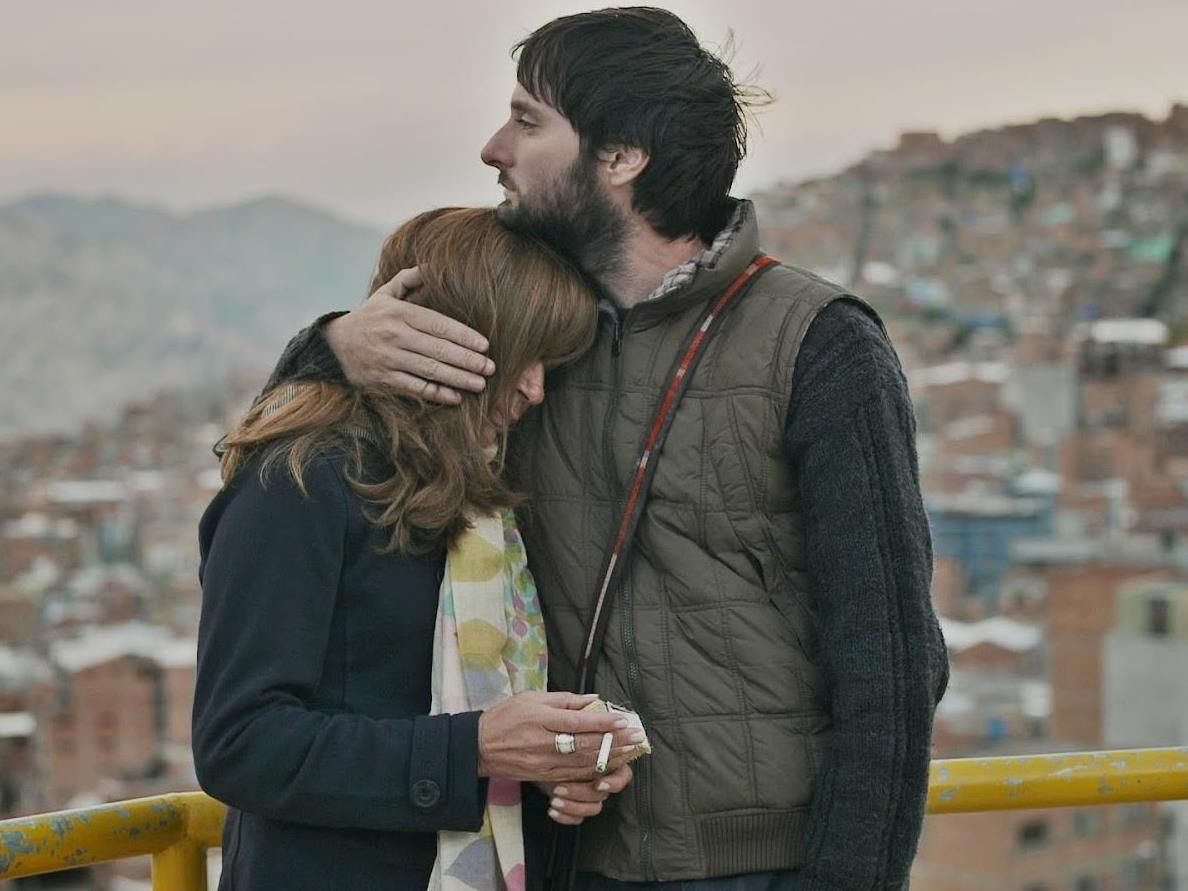‘You must always pay attention and behave yourself,’ Liso (Lisandro Rodríguez, The Invention of Flesh) is told on his release from a psychiatric facility and into the confines of his well-to-do family home. He takes the warning with patience and without a perceptible reaction, the same detached demeanour he wears as he reunites with his ever-hovering parents (Andrea Strenitz and The Student’s Ricardo Felix). The words of caution, however, could apply just as readily to the viewing audience.
Told in chapters, La Paz observes the attempted assimilation of Liso on his return – but the life he once had is no longer the one he wants. As his mother paints and his father stays immersed in business, it is his elderly grandmother (Beatriz Bernabe) who offers him her time, and their Bolivian maid (Fidelia Batallanos Michel) that becomes his true source of comfort. If he’s not rolling restlessly about the house, Liso is unsuccessfully endeavouring to reconnect with past loves, or riding around on the motorcycle bought for him as a replacement for true parental affection.
There’s an obvious divide in Santiago Loza’s seventh film in a decade, the Argentinian writer/director of Strange, Pink Motherland and The Lips showing the repercussions that can ripple from the warm intentions of the wealthy. Liso is surrounded by the appearance of help – his mother asks if he is okay, his father gives him money, and both are genuine in their concerns – but neither can delve deep enough into his pain to be of any real assistance. All his watching and waiting has to come to something; continuing on in the same vein of deep-seeded dysfunction can’t be sustained. He yearns for the actual change the titular place represents, his recovery hinging upon the chance to get away.
In his second collaboration with the filmmaker, Rodríguez is asked to largely play it calm and stoic as his character crumbles on the inside. For the bulk of the film, his efforts feel authentic and unassuming as he almost beckons for the gaze of the camera. When rare moments of cathartic outbursts arrive, he conveys the transition with spontaneity and naturalism. Around the lead performance, largely first-time players provide meatier snippets of expression, but understatement still reigns. Loza’s actors are as earnest yet restrained as his storytelling.
To say that La Paz remains slow moving despite its brief 72-minute running time may be an accurate statement, but the patient approach is in the service of piecing together both the mundane and the explosive in each of its carefully calibrated segments. Peering in, around and through the feature’s protagonist, the film’s framing lumbers about and sits in expectation of the action and revelations. Elsewhere, cinematographer Iván Fund (Today I Felt No Fear) sumptuously stares at the characters’ faces in close-up, with the same apparent motivation. Testing as they sometimes might be, both stylistic techniques are as important as each other, and as integral to the feature’s attentive meditation on old wounds and new beginnings.
Rating: 3 out of 5 stars
La Paz
Director: Santiago Loza
Argentina, 2013, 72 mins
At ACMI from May 24 – June 1
Classification: NA
Actors:
Director:
Format:
Country:
Release:





